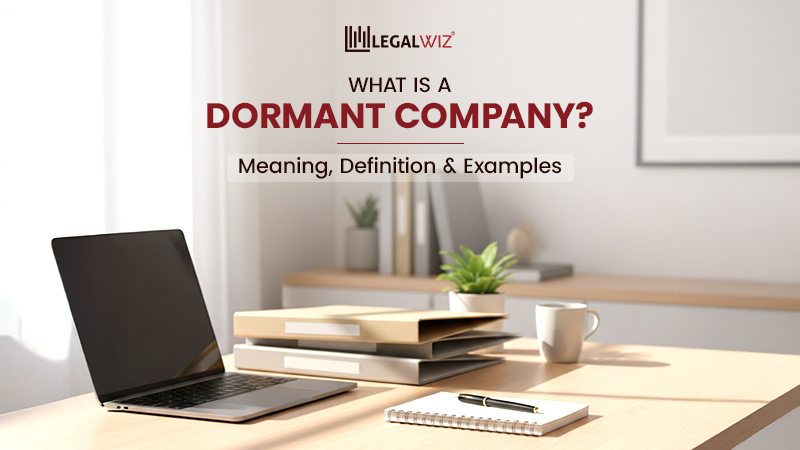Articles of Association in Company Law: All you need to know!
Memorandum of Association and Articles of Association in company law are two most important documents for all companies registered in India. Just like the Constitution and other Laws govern any Nation, the MOA and article of association under Companies Act, 2013 governs a Company. The MOA and AOA in company law, together, are known as the ‘charter documents’ of an organization. While the object of a Memorandum of Association is to state and clarify the ‘purpose’ of the company. The articles of association in a company specifies the manner in which a company will carry out its activities to reach its purpose.
So, for young entrepreneurs having enough knowledge of what is articles of association in company law. By this simple explanation, it is pretty easy to understand that when you register a pvt ltd company in India, you also need to focus on drafting these two documents with utmost care.
What is Articles of Association in Company Law?
Articles of Association in company law is one of the two most important documents of a registered company. Be it any of the types of company in India, Article of Association plays a very important role. Simply put, the AOA in company law is an agreement between the company and its promoters/members. It sets down all the rules and regulations of the internal affairs of a company. Apart from this, it also governs all rules of internal management of the company. Any act of a business that is not within the scope of the Articles of Association in Company law, is void and illegal.
Considering the fact that the articles of association in company law is very important for a company to exist legally. Schedule 1 of the Companies Act, 2013 provides different AoA model formats. A business seeking incorporation as a company, can add any or all of the provisions from the model AOA in company law to their own company. A business can customize these provisions based on their needs. These provisions can also be used on an as is basis. If a company does not make any changes to the model form of Articles of Association in company law, then it is assumed by the MCA that all provisions are applicable to the particular company.
Also Read: What is private limited company
Objectives of the Articles of Association as per Companies Act, 2013
Till now, it is evident that the company registration process is incomplete without the submission of articles of association in Company Law. The main object of the AOA is to maintain a relationship between the promoters/shareholders and the company. However, there are also other purposes that the submission of the articles of association serves. Let’s check them out:
Legal Compliance
The Articles of association are one of the key documents required for company registration in India. Hence, it serves the purpose of complying to the Companies Act, 2013.
Internal Directions
Once any company or organization is established, it needs to have some internal rules and regulations that help in enhancing business operations. Hence, providing the guidelines for internal governance is also an integral objective of Articles of Association in Companies Act, 2013. Moreover, it also highlights the role of Directors and their legal obligations.
Shareholder Rights
Another objective of the AOA is to define the rights of shareholders in a company. This does not exclude their responsibilities and liabilities.
Capital Details
The AOA along with the Memorandum of Association, gives out all the details of the minimum paid up capital of a company.
Winding Up
Another major purpose of articles of association of a company are to facilitate various provisions for winding up and liquidation of the company.
Components of AOA in Company Law
According to the section 5 of Companies Act, a valid articles of association in company laws must include all the provisions for the management of a company. This includes the following components:
Share Capital
All details related to the current and future shareholding is a mandatory component of Articles of Association in Companies Act 2013. This includes, rights of various shareholders, Lien on shares, Call on shares, Share transfer and transmission, Forfeiture and surrender, Share warrants, Share conversion, Share capital structure; and lastly, changes in the share capital structure.
General Meetings
A valid AoA includes provisions related to the general meetings, board meetings and also the voting rights of members.
Board of Directors
The AoA contains details of composition of the board of directors, their qualifications, and other rights and responsibilities of Directors. Read more in “Who can be a Director in a company?“
General Provisions
All other provisions such as terms related to accounts and audits, dividends and reserves, borrowing powers. Lastly, even winding up provisions are components of Articles of Association in company law.
Also Read: What is Memorandum of Association?
Importance of the Articles of Association of a Company
Mandated by Company Laws
Section 7 (1) of Companies Act, 2013 makes it mandatory to submit Articles of Associations during the company incorporation process. According to the law, any act or omission which is not in accordance with the Articles of Association, is void. A corporate transaction is only valid if it falls in the provisions of the AoA. If the company is desirous of conducting an activity outside the ambit of its AOA, the company first needs to file for Alteration of Articles of Association to make it suitable for their desired business activity. If not, the action will be void.
Validates other Documents
A company can only legally enter into a contract if its AoA allows. The Indian Laws are stringent to this extent that they invalidate a shareholder’s agreement if the provisions of the Articles of Association in company law do not provide for it. So, simple or complex agreements, neither are legally binding on a company unless they are a part of the AoA.
Also Read: How to register a company in India?
Entrenchment Provision
Entrenchment provisions make the amendment to certain other provisions impossible or really difficult. The entrenchment clause in the articles of association of a company becomes a provision of AOA after the consent of all members of the company. Further, it mitigates certain future risks and chances of disputes.
Binding Nature
By now, it is very clear that all provisions of articles of association of a company are binding in nature. When there are disputes in the company, the final decisions are in accordance with the AoA. Even the courts of India have time and again stated that articles of association governs all the rights and responsibilities of all members of a company.
Alteration to the Articles of Association
One of the most common questions that new business owners ask is whether they can alter the article of association once the company is established? The answer is yes. The AOA in company law provides rules and regulations governing the operations of a company. However, changing circumstances can create a need for changes in the way a company functions. Hence, alteration of the article of association is also an aspect to be aware of. You can get more information in the blog on the steps to alter articles of association.
Doctrines related to the Articles of Association
Doctrine of Constructive notice
According to this theory, any person entering into a contract with a company is presumed to be aware of the details of the articles of association. The reason being the fact that as soon as a company is incorporated, its Articles of Association becomes accessible to the public.
Indoor Management Doctrine
This doctrine protects outsiders of the company. According to this theory, even though the AoA and MoA are public knowledge, it is not okay to assume that the outsider desirous of entering into a business relation with the company will be aware of its internal policies and internal management.
Articles of Association in company law v/s Shareholder’s Agreements
On a broader aspect, the main purpose of a shareholder’s Agreement and an Articles of Association in a company is the same. They both focus on the internal management of the business by provisioning the scope of rights and duties of the shareholders and the members.
However, the major point of difference is that a shareholders’ agreement is not a mandatory agreement. It can give additional rights to the members of a company, but cannot be in violation of the provisions of the AoA. Hence, you can say that the shareholder’s agreement is subordinate to the Article of Association in company laws.
Conclusion
You must now be aware how important it is to draft proper articles of association in Companies Act, 2013. Moreover, the MOA and AOA may seem similar at a glance, but both serve different purposes. You can see the difference between MOA and AOA here. It is important to be completely aware of the different aspects before beginning your journey as an entrepreneur.
Frequently Asked Questions
Who creates the AOA?
Generally, the promoters and founders of a company create the Articles of Association during the company incorporation process.
Is registration of AOA mandatory?
Yes, the registration of AOA during company registration is a must. The company will only get approval after the duly signed AOA id submitted to the Registrar of Companies online.

Monjima Ghosh
Monjima is a lawyer and a professional content writer at LegalWiz.in. She has a keen interest in Legal technology & Legal design, and believes that content makes the world go round.







